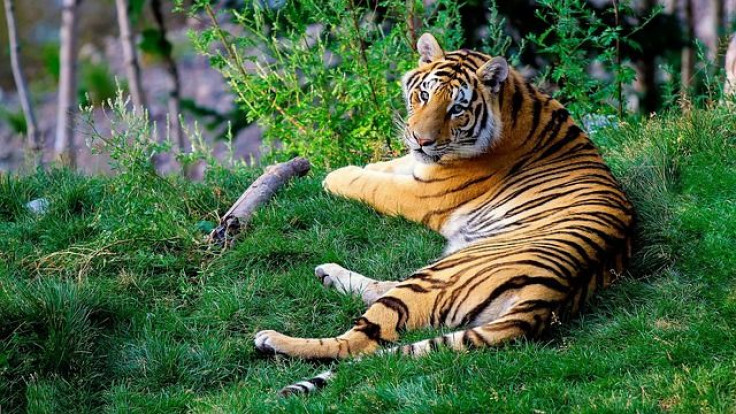Coronavirus In Animals: Tiger In Minnesota Tests Positive For COVID-19
KEY POINTS
- Minnesota authorities believe the tiger may have come in contact with an asymptomatic staff member
- This is the state's second confirmed COVID-19 case in a domestic/captive animal
- The animal has fully recovered and is now "bright, alert and responsive"
Another big cat has tested positive for the coronavirus. This time, the virus infected a geriatric Bengal tigress at a sanctuary in Minnesota.
State officials announced Tuesday that a tiger at The Wildcat Sanctuary in Sandstone tested positive for SARS-CoV-2, the virus that causes COVID-19. According to a statement from the sanctuary, tigers, lions and cougars at the facility began showing symptoms such as wheezing and a decreased appetite early this month. The staff sedated and took samples from the 21-year-old tiger, named Sabrina, "out of an abundance of caution" because of her age.
The U.S. Department of Agriculture on Tuesday confirmed the test came back positive.
All the animals that displayed symptoms have fully recovered and are now "bright, alert and responsive," The Wildcat Sanctuary said.
Although the facility took strict measures amid the pandemic, the animals likely got exposed to the virus through a caregiver who was asymptomatic. This was what happened in the case of the tiger at the Bronx Zoo in 2020 and, more recently, the gorillas at San Diego Zoo.
Sabrina's was the second confirmed SARS-CoV-2 case in a captive or domestic animal in Minnesota, State Veterinarian Dr. Beth Thompson said in a statement from the Minnesota Board of Animal Health (BAH). The first one was a house cat in Carver County that tested positive last June.
Apart from the strict protocols the Wildcat Sanctuary staff had been following since the pandemic began, they are now asked to wear gloves and N95 masks instead of cloth masks when they go near the animals. The animals now have their own utensils.

"It's a good reminder that the virus can be transmitted from people to animals," Dr. Thompson said.
The BAH advises people with COVID-19 symptoms to avoid going near their pets.
While humans can pass the virus to animals, the Center for Disease Control and Prevention (CDC) says there is so far "no evidence that animals play a significant role" in spreading SARS-CoV-2.
"Based on the limited information available to date, the risk of animals spreading COVID-19 to people is considered to be low," the CDC said.
"We have not seen any evidence of COVID passing from pet or wild captive cats to humans," Dr. Joni Scheftel, state public health veterinarian, said in the BAH news release. "Yet, in an abundance of caution, MDH is working closely with The Wildcat Sanctuary to understand and monitor the situation."
© Copyright IBTimes 2024. All rights reserved.












